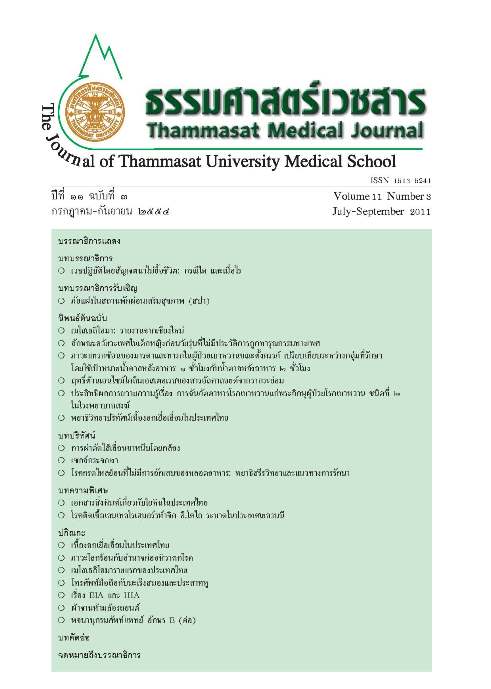Cholinesterase inhibitor from Rauvolfia serpentina alkaloids
Keywords:
Rauvolfia serpentine, cholineaterase inhibitorAbstract
Cholinesterase inhibitors are used in the treatment of memory impairment diseases. Rauvolfia serpentina (L.) Benth.ex.Kurz (RS) has been used as additional herb in some Thai traditional anti-rejuvenating and neurotonic remedies to potentiate hypnotic and tranquil effects. The aim of this study was to study the anticholinesterase activities of various crude extracts from RS root. Ethanolic extract (RsC) and two fractions of crude alkaloid extracts RsA and RsB were separated from dried root of the plant. By means of thin layer chromatography revealed that RsA was composed of reserpine as major alkaloid, yohimbine and other 2 weak basealkaloids as minus alkaloids whereas RsB was mainly composed of yohimbine and traced with other two alkaloids. Enzyme inhibitory activity of both acetylcholinesterase (AChE) and human butyrylcholinesterase (BuChE) were performed on RsC, RsA, RsB and yohimbine by the method of Elman. The IC50 values of RsC, RsA, RsB on BuChE were 20.65 ± 0.81, 10.79 ± 0.45, 9.07 ± 0.48 μg/μl and on AChE were 35.02 ± 0.76, 28.22 ± 0.51, 27.05 ± 0.69 μg/μl respectively. Yohimbine showed inhibitory effect only on BuChE with IC50 values of 2.47 ± 0.46 μg/μl. The results revealed that the crude alkaloid extracts containing yohimbine had more benefit effect than crude extract on increasing acetylcholine and this could be useful for neurodegenerative disease.
Key words: Rauvolfia serpentine, cholineaterase inhibitor


